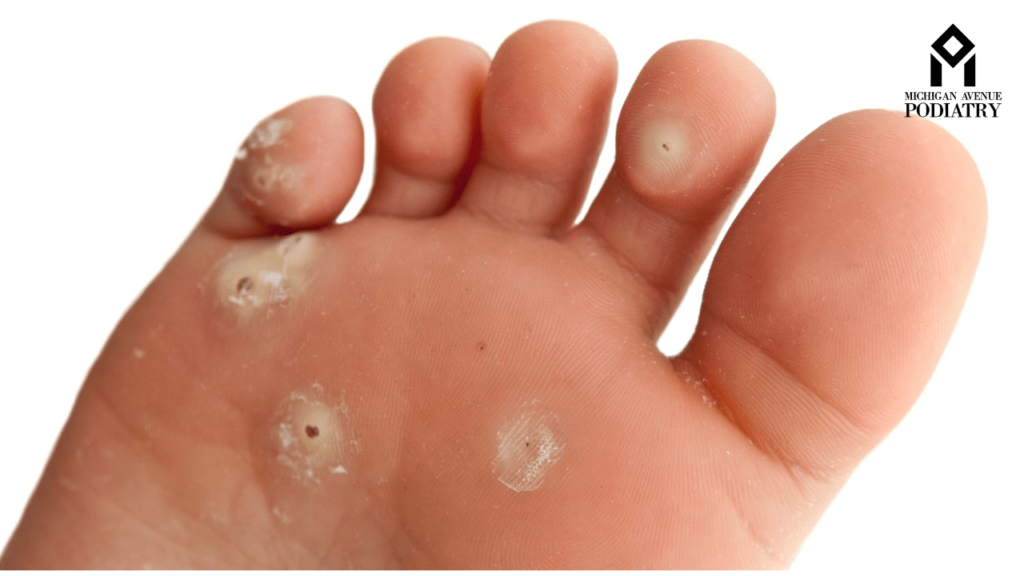Understanding Plantar Warts
Plantar warts are common viral infections caused by the human papillomavirus (HPV). They often appear as small, rough growths on the skin’s surface and can develop anywhere on the body, including the feet. Foot warts, also known as plantar warts, typically occur on bottom of foot and can be painful, especially when walking or standing.

Our Approach to Plantar Warts Treatment
Our experienced podiatrists are skilled in diagnosing and treating a wide range of foot conditions, including Plantar warts. When you visit Michigan Avenue Podiatry for wart treatment, you can expect personalized care tailored to your unique needs. Here’s what sets our approach apart:
Comprehensive Evaluation: We begin by thoroughly assessing your wart(s) to determine the most appropriate treatment plan. Our podiatrists consider factors such as the size, location, and severity of the warts, as well as your medical history and lifestyle.
- Customized Treatment Options: We offer a variety of effective wart treatment options to suit your individual preferences and circumstances. These may include topical medications, cryotherapy (freezing), laser therapy, chemical treatments, or a combination of approaches.
- Patient Education: We believe in empowering our patients with knowledge about their condition and treatment options. Our podiatrists take the time to explain each treatment method, including its benefits, potential side effects, and expected outcomes. We encourage open communication and welcome any questions or concerns you may have.
- Compassionate Care: Your comfort and well-being are our top priorities. We strive to create a welcoming and supportive environment where you feel heard, respected, and cared for throughout your wart treatment journey. Our compassionate team is here to provide guidance, encouragement, and assistance every step of the way.
Follow-Up and Monitoring: After initiating wart treatment, we schedule follow-up appointments to monitor your progress and adjust the treatment plan as needed. Our goal is to ensure that you achieve optimal results and experience long-lasting relief from your warts.
Schedule Your Wart Treatment Consultation Today
Don’t let foot warts hold you back from enjoying life to the fullest. Take the first step toward healthier, happier feet by scheduling a consultation with Michigan Avenue Podiatry. Our skilled podiatrists are dedicated to helping you overcome warts and regain confidence in your stride. Contact us today to learn more about our wart treatment solutions and schedule your appointment.
